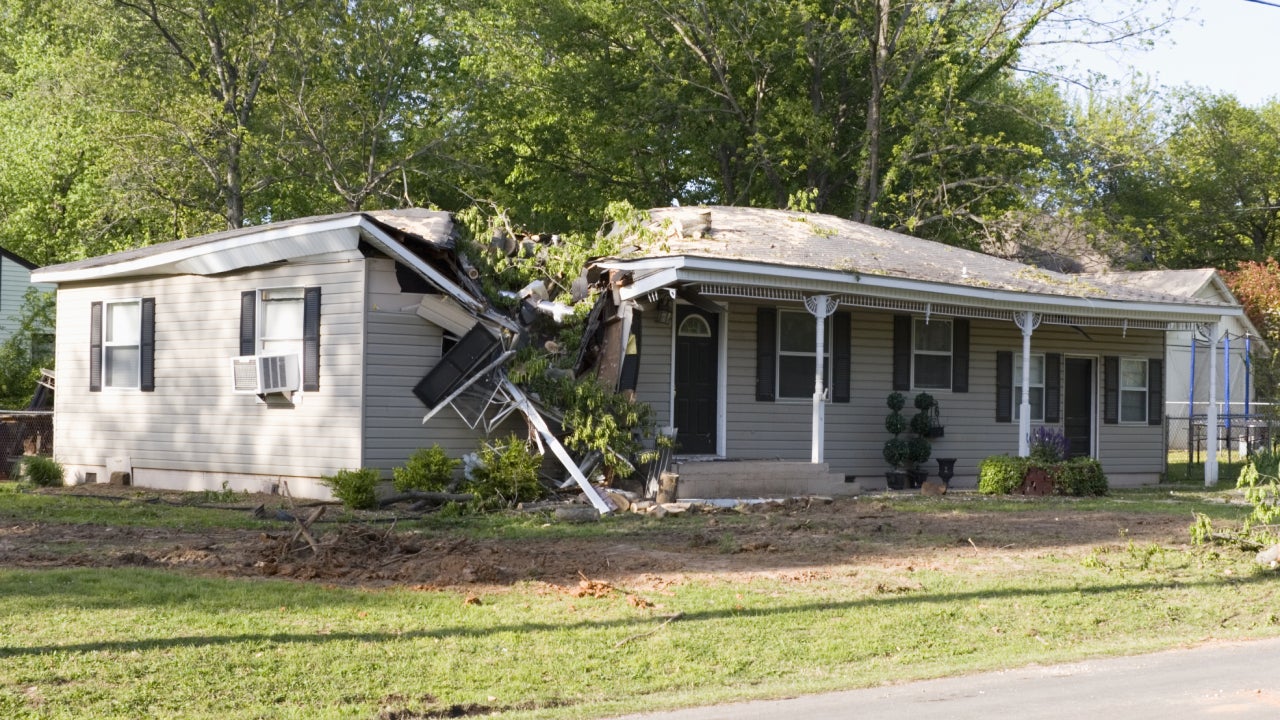Sell my house fast in Ohio

Want to get on the fast track to a quicker sale of your Ohio home? Recent sales data reflects some good news for prospective sellers: Sale prices are on the rise. But the pace of sales has slowed, indicating that affordability is likely a challenge for home shoppers. The Buckeye State is mirroring a trend seen across the country, where continued high mortgage rates and elevated home prices are causing potential buyers to reconsider.
Despite these challenges, selling your house in Ohio can still be advantageous. But doing it quickly might be a bit trickier. Read on to learn more about how to sell your house fast in Ohio.
How fast can you sell your home in Ohio?
Let’s take a look at the current housing market in Ohio to get a better idea of how quickly you can find a buyer for your property. Ohio Realtors data from December 2023 shows that the number of homes sold in the state decreased by 9.5 percent year-over-year, while the average sale price increased by 8.1 percent. So, fewer homes are selling than last year, but those that do are selling for more.
According to Redfin stats, it typically takes a bit more than a month to find a buyer. The median length of time Ohio homes spent on the market in December 2023 was 35 days, which is actually 7 days faster than one year earlier. But that’s just the time it takes to go into contract — it could be weeks, or longer, after that before the deal closes.
The days-on-market metric is likely to speed up in the spring and summer, which is generally considered the best time of year to sell, largely due to nicer weather and school being out.
Need to sell even faster?
If you’re pressed for time, there are ways to expedite the sale process. Here are a few methods to consider — but keep in mind that none of them are likely to result in a top-dollar, market value price.
- Sell to an iBuyer: Ohio is a popular market for iBuyers, which make same-day or next-day offers and can usually close the entire deal within just a few weeks. Opendoor, one of the biggest, buys homes in the Cincinnati, Cleveland and Columbus areas, while Offerpad, another big player, also operates in Columbus.
- Sell to a cash homebuyer: Similarly, companies that advertise “we buy houses” offer quick cash and close with lightning speed. They are often willing to buy homes in any condition, no matter how poor, which makes them an appealing choice for people who are unable or unwilling to pay for repairs on a dilapidated property.
- Sell as-is: An as-is listing tells the buyer that you will not be engaging in negotiations about the home’s condition: What they see is what they get. This can save a considerable amount of back-and-forth time.
- Talk to your agent: You can still move quickly while working with a traditional real estate agent. Just be upfront with them from the outset — an agent who knows that time is of the essence can market a listing accordingly.
Find a trusted real estate agent
Selling the traditional way, with the help of a licensed real estate agent, is not as speedy as selling to an iBuyer or “we buy houses” company. But it is the best option if selling for the best price possible is more important to you than selling as fast as possible.
Hunt around carefully to find the right agent for you — one who has ample experience in your specific local market and a track record of successful sales. A skilled real estate agent plays a pivotal role in connecting you with potential buyers and assumes the essential responsibilities of marketing, showcasing and negotiating for the best deal on your behalf. Conduct interviews with multiple agents to understand what their approach to your property will be.
Sell your home fast for fair market value
If you want to sell for the highest price you can get, your property needs to be as appealing as possible to buyers, inside and out. Before you list your Ohio house, answer these five key questions:
How should you price your listing?
This might be the single most important question a home seller will consider. Free online tools, like Zillow’s “Zestimate,” can help, but it’s best to let your agent’s professional expertise lead the way here. Your agent will research local comps, or homes similar to yours that have sold recently nearby, to estimate how much the property is worth and set an appropriate asking price. It’s a delicate balance, ensuring you don’t undervalue your property while also avoiding overpricing that might discourage buyers. A too-high price can also cause the property to sit on the market for longer, which is not ideal if your goal is a quick sale.
Should you improve your home before selling?
The answer depends on the scope of the project you’re considering. Major renovations, like a full kitchen remodel, typically fall short of recovering their full costs upon resale. Instead of engaging in large-scale construction, which will delay your listing, consider more cost-effective solutions, such as quick curb-appeal upgrades, which can also increase your home’s value.
What repairs should be addressed before selling?
Given that a buyer is already committing a substantial amount to purchase your home, they may be reluctant to take on additional costs for repairs. It’s probably best to fix minor issues, like chipping paint or leaking faucets, that would be obviously noticeable to potential buyers. However, you don’t need to address every single thing. Consult with your agent about what’s worth fixing and what isn’t.
Is staging your home a good idea?
Cluttered countertops and stacks of books everywhere can make rooms feel smaller and less appealing to potential buyers. By the same token, a home that’s completely empty can feel cold and make it challenging for buyers to envision how they might use the space. Investing in home staging is akin to dressing up your property for a first date – you want to make a memorable first impression. A well-staged home can capture buyers’ attention, potentially leading them to make an offer faster, and for a higher price. The cost can vary greatly depending on how big the home is and how much work is needed, ranging from just a bit of reorganization to a full overhaul or furniture rental.
What do you need to disclose to the buyer?
Sellers in Ohio must fill out the state’s residential property disclosure form, detailing any known defects that could impact the home’s value or safety. This encompasses a range of issues such as past roof damage, leaks, proximity to a Lake Erie coastal-erosion area and more. Essentially, any aspect that might give a potential buyer pause in considering the purchase needs to be transparently shared.
If your property is governed by a homeowners association, you’ll also need to compile and turn over all relevant documents, including bylaws, minutes from the past year’s meetings, financial details and more.
Closing day
The most important day on your selling calendar is the closing date, when your home sale transaction will finally be complete. It’s also when you’ll need to pay your share of closing costs, which are the expenses associated with finalizing the property sale. Closing costs in Ohio for a home seller can include some or all of the following fees and expenses:
- Real estate commissions: As the seller, you are responsible for covering the commission fees for both your agent and your buyer’s. This will typically be between 5 and 6 percent of the home’s sale price, and will likely be your biggest expense by far. The average price of an Ohio home in December was $265,828, per Ohio Realtors, and 5.5 percent of that comes to more than $14,600.
- Title insurance: In most Ohio counties, the expense of an owner’s title insurance policy is shared between the buyer and seller. For a home priced at $250,000, the title coverage cost would be slightly over $1,300, with your share totaling just over $650.
- Transfer taxes: A tax on the transfer of property ownership is common in many states. In Ohio, it is referred to as a “real property conveyance fee” and amounts to approximately $1 for every $1,000 of property value.
- Attorney fees: While hiring a lawyer is not mandatory for selling a house in Ohio, it is definitely beneficial to have a legal expert look over all your paperwork. Their fees will be due at closing.
- Concessions: If you agree to seller concessions — such as covering a portion of the buyer’s closing costs or paying for a required repair — those are paid at closing as well.
Bottom line
To position your home for a speedier sale, it’s smart to do your homework, recruit a knowledgeable real estate agent and price it correctly based on market conditions. You will be able to sell even faster if you work with a cash-homebuyer or an iBuyer, but weigh the pros and cons thoroughly first, as you aren’t likely to make as much money that way as you would with an agent-assisted sale.
FAQs
-
You can sell your home much more quickly than usual if you sell to an iBuyer or a cash-homebuying company. These operations make near-instant cash offers and can usually close within just a few weeks. However, they need to make a profit on each transaction, so they typically do not offer market value prices. In other words, you’ll sell faster, but you’ll make less money on the sale.
-
Yes, an experienced real estate agent who knows your local market well can give you a leg up on other sellers and market your home for speed. However, chances are your buyer will be paying for the purchase by taking out a mortgage loan, which means you’ll have to wait on their financing to be finalized before you can close.
Why we ask for feedback Your feedback helps us improve our content and services. It takes less than a minute to complete.
Your responses are anonymous and will only be used for improving our website.
You may also like

What disasters does home insurance cover?

Do you need your own claims adjuster?

How a speeding ticket impacts your insurance in Kentucky



